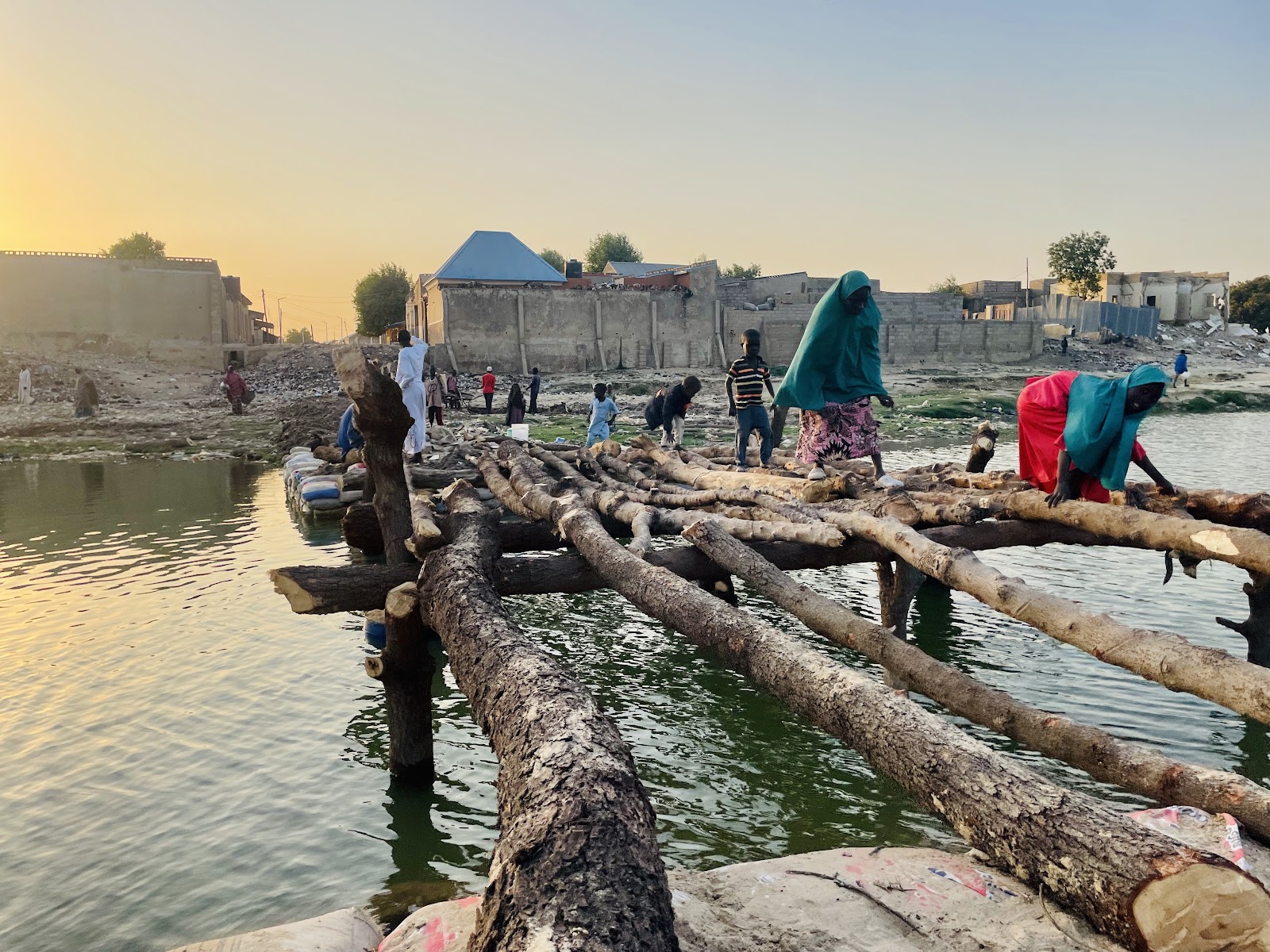Borno’s Broken Bridge: Residents Suffer as Youths Build Alternative Amid Official Neglect
Four months after devastating floods hit Maiduguri, Borno State, leaving a million people affected, residents of Fori community have united to build a makeshift bridge to restore crucial access to essential services amid government inactions.
On Sept. 10, 2024, a collapsed dam in Maiduguri, northeastern Borno State, led to devastating floods that affected about a million people. Aside from 37 lives that were lost, no fewer than 400,000 others were displaced, according to the state government.
It also caused widespread damage to major infrastructure in Fori, Gwange, UMTH London Ciki, Gidan Danbe, Zara Plaza, Lagos Street, Abbaganaram, Kofa, Budum, Kalari, Shehuri, and Shehuri North. While other flood-hit structures received patchwork repairs, Fori bridge, which connects Fori and Galtimari to Tashan Bama, has been left unattended to by the government, turning a simple 10-minute journey into an exhausting hour-long detour for thousands of residents.
Though many people defy odds to cross the damaged bridge, the hazardous endeavour often resulted in injuries, disproportionately affecting vulnerable groups such as the elderly, children, and women.
Harrowing experience
Speaking with HumAngle, Maryam Habib’s voice trembled as she narrated the terrifying moment a mother fell while navigating the treacherous bridge with her children. “The woman was holding a six-year-old daughter and carrying a toddler on her back when she fell on the debris,” Maryam recalled. “Her daughter lost a tooth and suffered bruises, while the woman herself sustained several injuries on her body.”
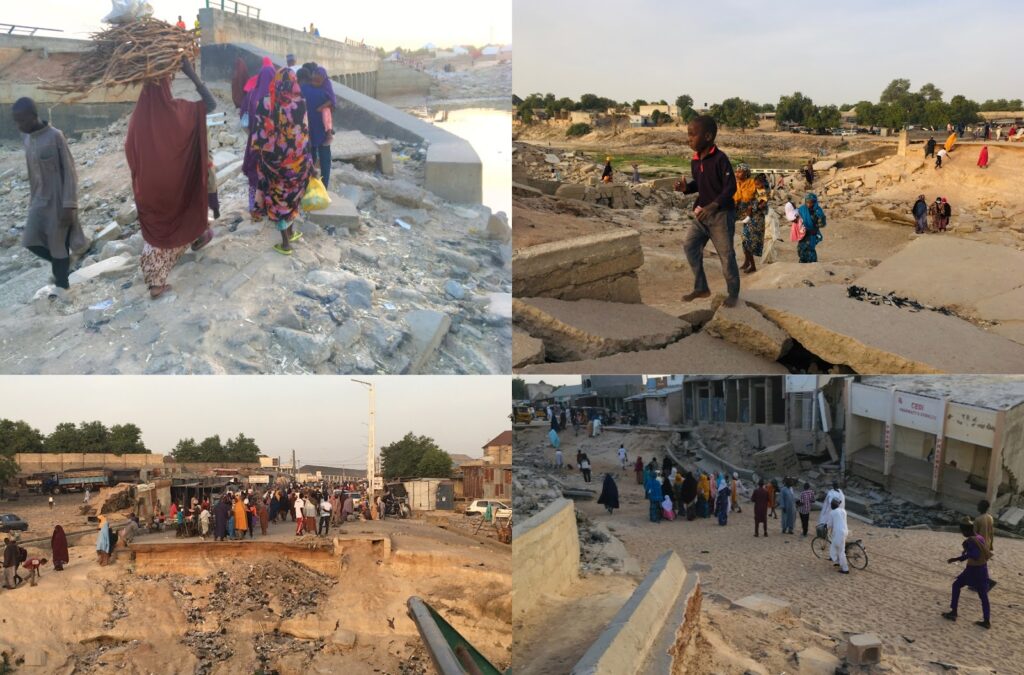
For Hauwa Adamu, a widow and mother of four, the bridge has become a source of perpetual fear. She told HumAngle that her youngest child, Aisha, bursts into tears every time they attempt to cross. The reason is stark: four massive holes on the bridge force pedestrians to crouch and navigate through, making every crossing a heart-stopping ordeal.
Fatima Yusuf, a secondary school student whose education has been affected by the ugly development, said: “I easily crossed the bridge to my school in the past, but after last year’s floods damaged it, my academics suffered because I had to spend more on transportation despite the economic hardship confronting my family.”
Construction of alternative
Concerned about the difficulties faced by residents who use the bridge to connect the University of Maiduguri, Bama Motor Park, the University of Maiduguri Teaching Hospital, businesses, schools, and other essential services, ten enterprising youths have constructed a makeshift bridge as an alternative.
The youths said they raised over ₦600,000 among themselves to make an improvised bridge from wooden planks and scrap metal. To ensure proper maintenance, they collect a toll fee of ₦100 from cars, ₦50 for tricycles, and ₦20 for pedestrians.
“The aim is to maintain the bridge with the little amount we get from commuters,” said Jerry Markus, one of the youths who made the alternative bridge.
His colleague, Muhammad Ali, added that while over 2,000 people and 500 motorists access the bridge daily, children and aged people are excluded from paying toll fees. “We did this not to enrich ourselves but to help our community,” he explained.
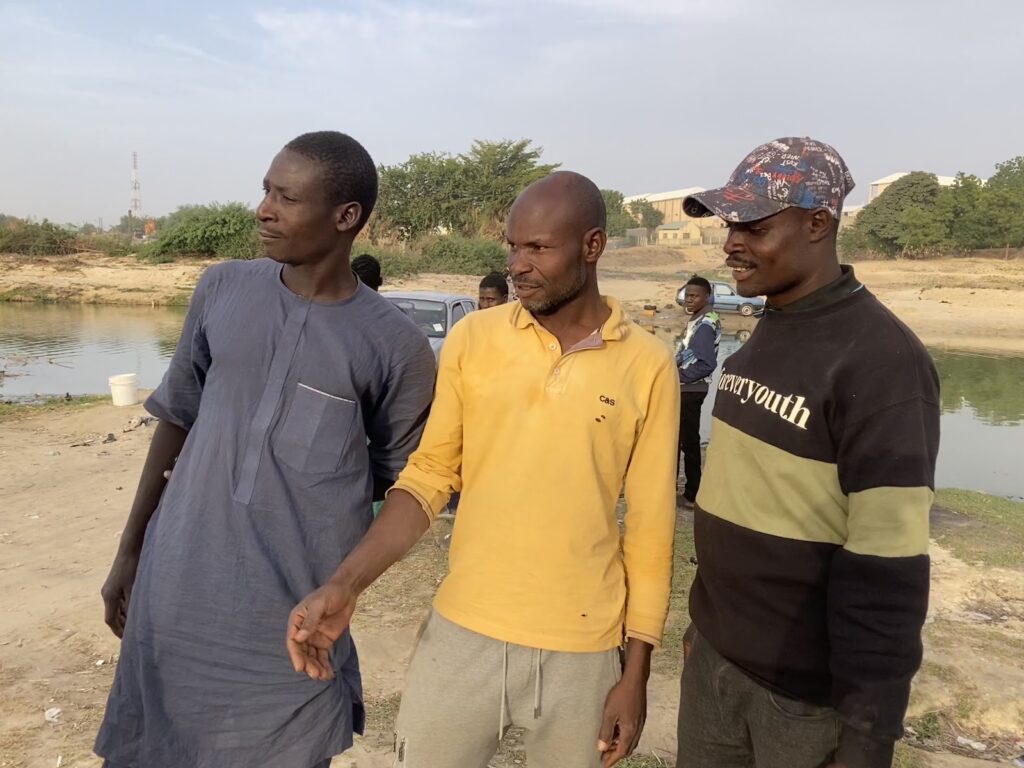
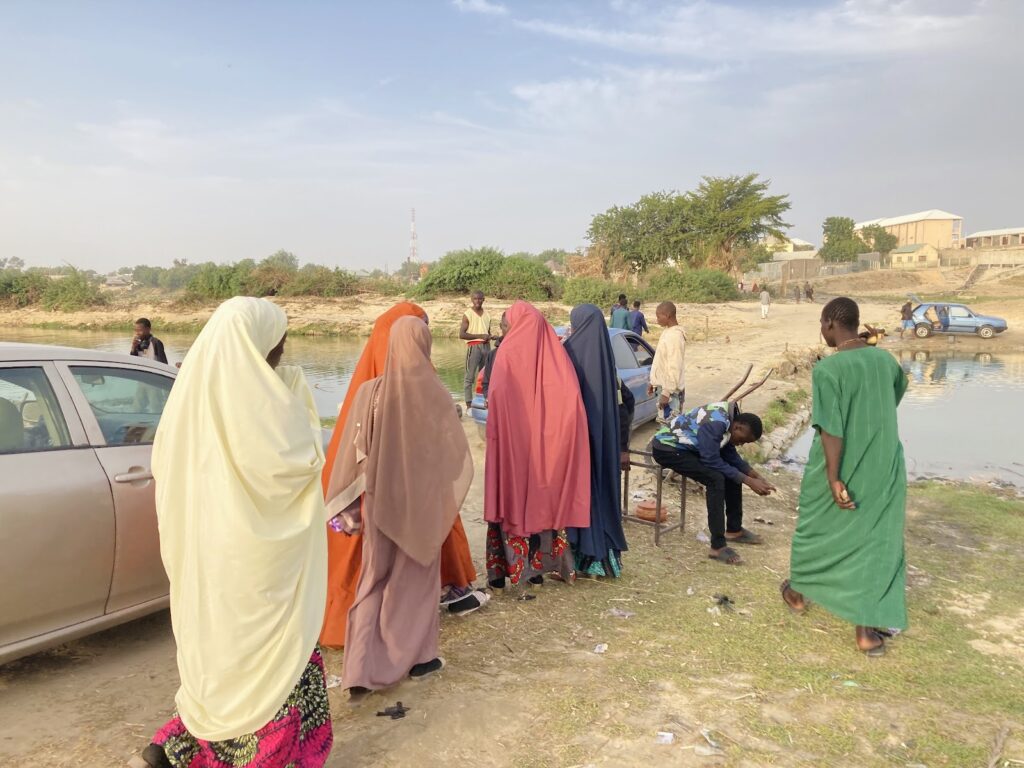
One of the beneficiaries of the alternative bridge, Musa Goni, explained that following the damage of the Fatori bridge last September, he usually spent an hour to reach the market from home. “Now, it’s a simple 10-minute journey. We’re grateful to the youths who made this possible.”
Ten metres away from the already completed makeshift bridge, another is under construction as undeterred residents were seen pooling resources to create an additional bridge to ease the condition further.
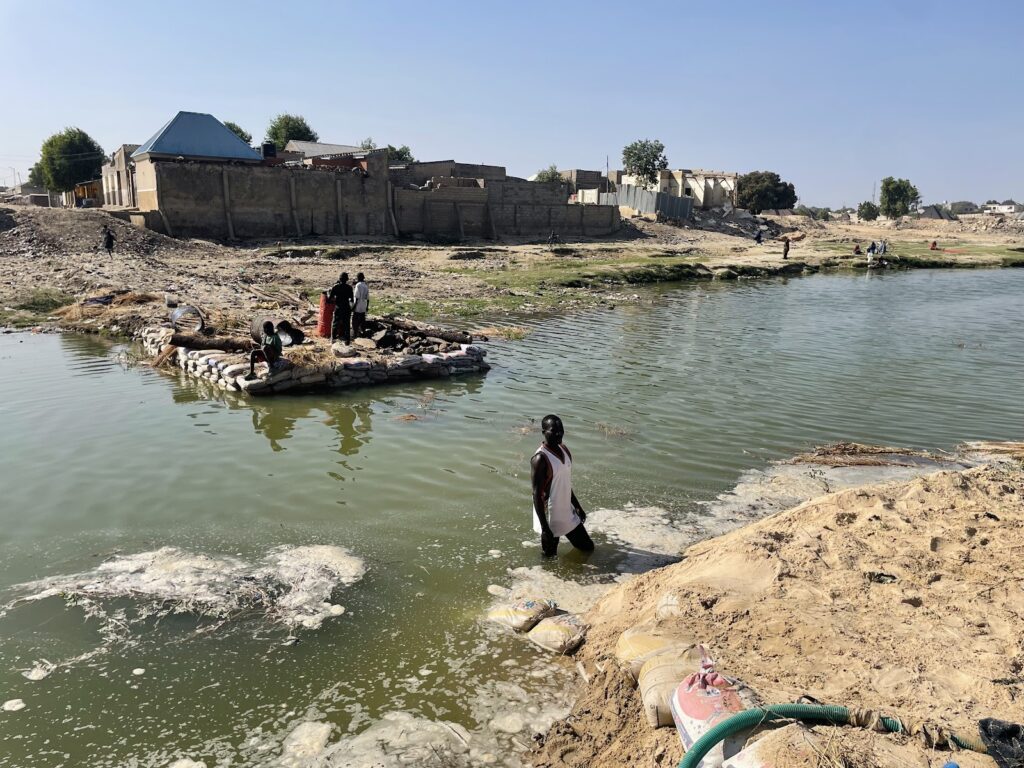
Not everyone is satisfied
Despite the initiative by the youths, the inability of the temporary bridge to support heavy vehicles has led to a drastic surge in transportation costs, forcing truck drivers to embark on lengthy journeys to supply goods to business owners.
For entrepreneurs like Usman Bunu, a block seller, the consequences are dire. “We’ve had to increase our prices because of the additional costs incurred on transportation,” he lamented. “Unfortunately, this has driven many customers to seek alternative suppliers.”
Baba Isah, a resilient elderly resident, crosses the treacherous bridge daily to reach his business. His eyes reflect the hardship he faces daily during an interview with HumAngle. “I feel jittery every time I cross. It’s like climbing the biggest mountain in the world,” he said. “But I have no choice; my livelihood depends on it.”
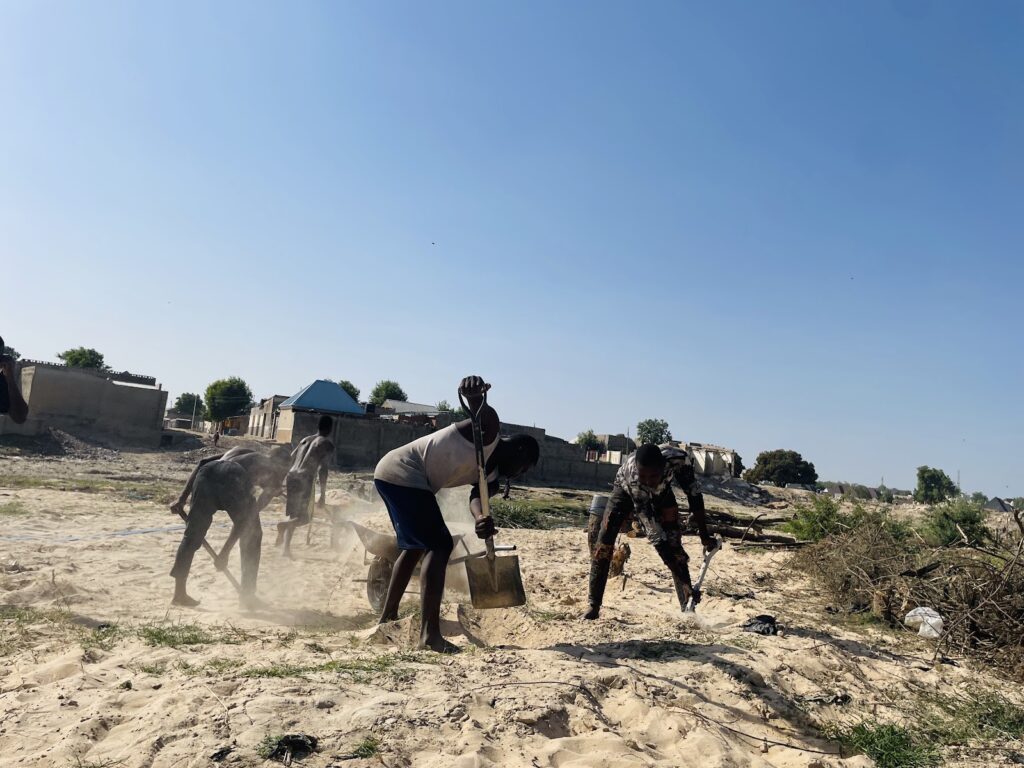
As the local economy faces challenges, residents and business owners are left wondering when the government will intervene to rebuild a permanent Fori bridge, to restore vital connectivity and revive the area’s economic vitality.
State gov’t keeps mum
HumAngle contacted Borno State’s Commissioner for Works and Housing, Mustapha Gubio, for comments but he’s yet to respond to several calls and text messages sent by our reporter.
Reacting to the government’s inactions, Hamza Iliya, a resident, said, “we are being treated like second-class citizens because most residents here aren’t high government officials or influential people. If this bridge served a government reserve area, it would have been fixed by now.”
Despite grassroots efforts to provide a temporary solution, residents’ frustration deepens with each day as they wait for the government to rebuild the permanent Fori bridge.
In Maiduguri, Borno State, a dam collapse on September 10, 2024, led to severe flooding, impacting around a million people, claiming 37 lives, and displacing over 400,000.
Critical infrastructure, including the Fori bridge, was damaged, making daily commutes hazardous, especially affecting vulnerable groups.
Despite the government's inaction, ten youths constructed a makeshift bridge funded through toll fees to assist the community, highlighting the disparity created by the damaged bridge, particularly for students and businesses struggling with increased transport costs and livelihood challenges.
Local entrepreneurs and residents voiced frustrations over the absence of government intervention for a permanent solution, emphasizing the increased cost burdens and the emotional toll of the precarious bridge crossing. Efforts to establish more makeshift bridges are ongoing as the state government remains unresponsive to inquiries.
The community continues to urge the government to rebuild the Fori bridge to restore connectivity and economic stability.
Support Our Journalism
There are millions of ordinary people affected by conflict in Africa whose stories are missing in the mainstream media. HumAngle is determined to tell those challenging and under-reported stories, hoping that the people impacted by these conflicts will find the safety and security they deserve.
To ensure that we continue to provide public service coverage, we have a small favour to ask you. We want you to be part of our journalistic endeavour by contributing a token to us.
Your donation will further promote a robust, free, and independent media.
Donate HereStay Closer To The Stories That Matter

